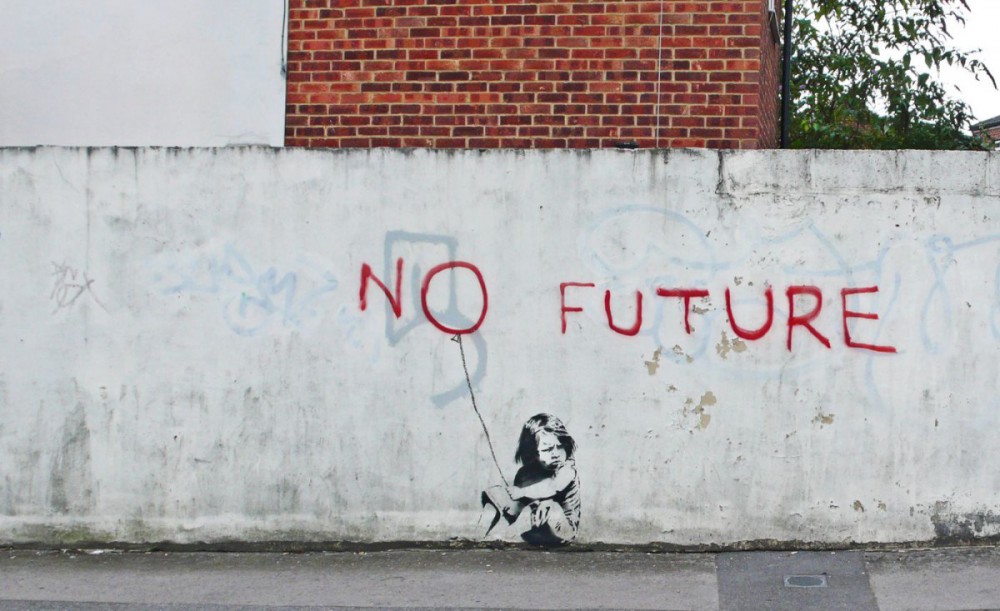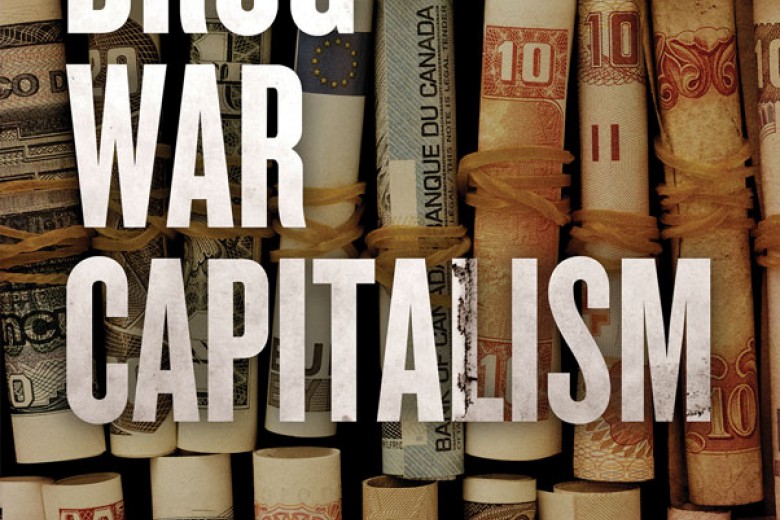I first heard the Who song “My Generation” when I was about 13 years old. “People try to put us down/talkin’ ’bout my generation.” That sounded right on to me. Everyone was crapping on us because we were young, angry, and rebellious.
I’m a whole lot older now. When people try to put down my generation (I’m a tail-end boomer) it‘s usually because we seem to be sitting pretty while younger people struggle for the most basic opportunities.
But this generational analysis is flawed. First off, generations are not coherent groups who all share the same interests; they’re internally divided by deep inequalities. Most people over 50 years old do not have good jobs (defined by pay, benefits, and security) and are not looking forward to retirement with a defined benefits pension (where the level of your post-retirement earnings is guaranteed).
Further, it‘s not true in a simple way that we agreed to sacrifice younger generations to maintain our own privileges. It took a brutal offensive by employers and state policy-makers to leave young people in such a vulnerable position by weakening unions and undermining social programs. This is the result of capitalists seeking cheaper labour and higher profits while making the lives of working-class people more precarious.
Nonetheless, the generational dynamics cannot be totally dismissed. Let me give an example. The union for the full-time faculty at Ryerson University (my union) has been negotiating to reduce our teaching loads. Full-time faculty generally embrace the idea as a way of managing what they perceive as out of control workloads created by ever-increasing demands for productivity in research output and in the bureaucratic work we do to sustain the institution.
The only way the university can fund a teaching load reduction is by hiring more precarious sessional instructors on course by course contracts. They earn a tiny portion of full-time faculty wages and have no benefits or job security. So there is a connection between the reduced workload of full-time faculty and the increased hiring of precarious academic workers.
These sessional professors are, in general, younger people who are every bit as qualified as I am, indeed often more so because graduate school and the job market are much more competitive now. They have to work really hard, teaching as many courses as they can get to eke out a living. This leaves them no time to write and limits their chances of getting full-time jobs, as permanent faculty are hired primarily on the basis of their research record.
Full-time faculty are benefiting from a two-tier labour market, and there are generational aspects to that. In a unionized workplace, a two-tier contract is where employers offer to maintain the condition of current workers in exchange for offering lower wages, fewer benefits, and less security to new employees hired after the contract is signed. This trend has been generalized into a two-tier labour market where “good” jobs are largely eliminated when those who hold them retire or are laid off and newer people are hired with less security, pay, and benefits.

It is employers and state policy-makers who have masterminded the creation of a two-tier workforce, in order to boost corporate profitability. Nevertheless, this raises important issues for those in the more privileged tier, which tends to be mainly an older generation. The two-tier workforce undercuts solidarity by creating very real divisions in conditions and interests. Ultimately, this gives employers the space they need to divide and rule.
It is the responsibility of us in the more privileged tier to forge real solidarity with the younger workforce who are mostly stuck in the lower, more precarious tier. This is not simply about some abstract principle of justice; it’s vital for building an effective fightback to defeat the corporate austerity agenda.
Sadly, the more privileged tier of mainly older workers has seldom risen to this challenge. The slogan of “no concessions” in union negotiations has papered over a strategy of preserving the contract conditions of longer-term workers and selling out those hired after the deal is sealed. We need an urgent rethink to build strategies that nurture basic solidarity by putting workers in the same boat.
Concretely, on campuses we need to be using the clout of the more established workers such as full-time faculty to support campus coalitions oriented around the needs of students and precarious workers. This solidarity should include practical efforts to share our better conditions more justly with those who are in precarious positions.
Without a serious strategy for solidarity, full-time faculty will find themselves politically isolated when their job security and working conditions are seriously challenged by governments and university administrations. Neither students facing a precarious future, nor part-time faculty working under much less desirable conditions, nor a broader public are likely to be moved to solidarity with full-time faculty defending what looks like a relatively good deal.
It will require some creative thinking among radicals to begin to figure out how to do this without simply offering up concessions to employers around workload and benefits that undercut the position of everyone. There may be something to be learned from the militant Common Front strike of Quebec public sector workers in 1972, which focused the clout of the whole workforce on negotiating better conditions for the lowest paid workers.

People living in a capitalist society get very used to short-term and self-interested thinking. Ultimately, capital lives in the moment, seeking the highest return as soon as possible. Corporations are loyal only to immediate profit rates, and not to employees, communities, or the environment.
Those of us working to overturn the system have to think in terms of genuine solidarity over the longer term. My generation benefited from the difficult struggles of those who came before us that won core union rights and improved social programs through bitter struggles. We owe those who come after us more than the two-tier workforce that maintains those conditions for us alone and excludes younger workers.
As we open up questions of generational thinking, other dimensions begin to appear. Daniel Bensaïd, a wonderful French Marxist writer, raised important questions about generational justice in ecological perspectives. We must take future generations into account and consider the long-term impacts of resource development and the organization of our relationship with nature at every level.
Similarly, we must foreground the long-term legacy of colonialism and racism when thinking about justice in the here and now. Granting equal rights to Indigenous people (who seek sovereignty not assimilation), or to people of colour, does not address the inter-generational impact of cultural destruction and colonial expropriation.
Generational justice will be key to any escape from the sinkhole of three decades of neoliberalism. We cannot combat exploitation by trying to save some while letting others sink deeper in the mire. Effective solidarity must account for the legacies of the past, the inequities of the present, and the implications for the future.







